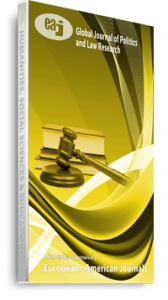Global concern over terrorism and financing of terrorism became greatly heightened after September 11, 2001 bombing of the World Trade Centre with the concerted efforts put to bear across countries towards reassessment of policies, strategies and the readiness to forge international cooperation to ‘‘choke” the financing of terrorist groups and Organisations in support of terrorism. The employment of intelligence against terror and the confirmation of reports and findings of the States’ intelligence apparatuses also shed new knowledge which often dictates constant redefinition of terms and approaches in the fight against terrorism. Despite the elaborate legal framework in Combating Money Laundering and Financing of Terrorism in Nigeria, little can be said to have been achieved. It is suggested that all parties involved in the administration of criminal justice shall collaborate to ensure that criminal cases particularly Anti-Money Laundering and Combating of Financing of Terrorism are properly investigated, prosecuted and tried with minimum delay. Also, more serious efforts should be made to remove socio-economic injustices, imbalances and inequities in the society, alleviate the suffering of the people, provide increased job opportunities and the right atmosphere for genuine business and investment to thrive
Keywords: Examination, Financing, Terrorism, adequacy of Nigerian law

